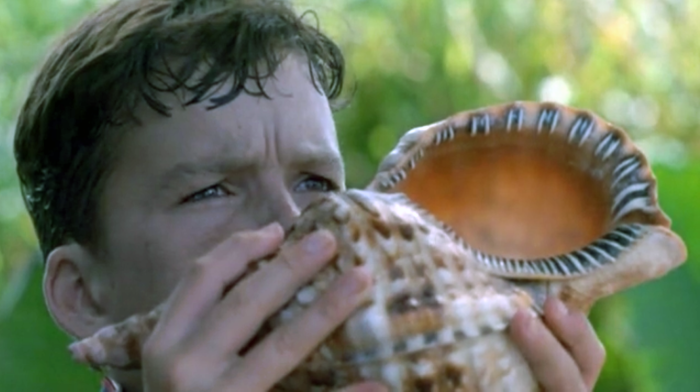Cessation definition lord of the flies – In William Golding’s seminal novel, Lord of the Flies, the concept of cessation takes center stage, a gradual but inexorable unraveling that ultimately consumes the young protagonists and their fragile society. This essay will delve into the multifaceted meaning of cessation within the novel, exploring its impact on authority, innocence, hope, and civilization itself.
As the boys are stranded on the island, the absence of adult supervision and the allure of primal instincts lead to a breakdown in established rules and the erosion of authority. The conch shell, once a symbol of order and unity, becomes a mere relic as chaos and savagery take hold.
Cessation Definition: Cessation Definition Lord Of The Flies

The term “cessation” is used throughout the novel Lord of the Fliesto describe the gradual decline of order and civilization on the island. It refers to the breakdown of rules, the loss of authority, and the eventual descent into chaos and savagery.
Examples of Cessation in the Novel
- The cessation of rules is evident in the boys’ failure to maintain the fire, which leads to the death of Piggy.
- The cessation of authority is seen in the decline of Ralph’s leadership and the rise of Jack’s violent dictatorship.
- The cessation of civilization is symbolized by the destruction of the conch shell, which represents the boys’ last hope for order and reason.
Significance of Cessation in the Novel’s Themes
The cessation of order and civilization on the island is a central theme of Lord of the Flies. It reflects the author’s belief that human beings are inherently savage and that society is a fragile construct that can easily be destroyed.
Cessation of Authority
The breakdown of authority on the island is a major factor in the novel’s tragic ending. As Ralph’s leadership wanes, the boys become increasingly divided and unruly. Jack’s violent dictatorship eventually takes hold, and the island descends into chaos.
Characters’ Responses to the Loss of Authority
- Ralph becomes increasingly isolated and powerless.
- Jack becomes increasingly tyrannical and ruthless.
- The other boys are forced to choose sides, often against their better judgment.
Symbolism of the Conch Shell
The conch shell is a symbol of authority and order on the island. When it is destroyed, it represents the final breakdown of civilization and the triumph of savagery.
Cessation of Innocence
The loss of innocence is another major theme of Lord of the Flies. As the boys spend more time on the island, they gradually become more savage and violent. This loss of innocence is symbolized by the killing of Simon, who represents the last vestiges of goodness and reason.
Events and Characters Illustrating the Loss of Innocence
- The killing of Piggy
- The torture of Samneric
- The destruction of the conch shell
Role of Fear and Violence in the Cessation of Innocence
Fear and violence play a major role in the cessation of innocence on the island. The boys are constantly afraid of being attacked by the “beast,” and this fear leads them to become increasingly violent and cruel.
Cessation of Hope
The gradual loss of hope among the boys is a major factor in the novel’s tragic ending. As the boys spend more time on the island, they begin to lose hope of being rescued. This loss of hope leads them to become increasingly desperate and violent.
Characters’ Motivations and Actions as They Lose Hope
- Ralph becomes increasingly isolated and withdrawn.
- Jack becomes increasingly ruthless and violent.
- The other boys become increasingly desperate and hopeless.
Significance of the Rescue at the End of the Novel
The rescue at the end of the novel is a bittersweet moment. It represents the end of the boys’ ordeal on the island, but it also highlights the tragic loss of innocence and hope that has occurred.
Cessation of Civilization
The concept of civilization is a central theme of Lord of the Flies. The boys’ society on the island initially attempts to maintain a semblance of civilization, but it gradually fails as the boys become more savage and violent.
Ways in Which the Boys’ Society Fails to Maintain Civilization
- The boys fail to maintain the fire, which leads to the death of Piggy.
- The boys fail to resolve their conflicts peacefully, which leads to the killing of Simon.
- The boys fail to respect authority, which leads to the breakdown of order and the rise of Jack’s dictatorship.
Role of Savagery and Human Nature in the Cessation of Civilization, Cessation definition lord of the flies
The cessation of civilization on the island is due to a combination of factors, including the boys’ savage instincts and the lack of adult supervision. The boys’ savage instincts are evident in their violence and cruelty, while the lack of adult supervision allows them to act on their impulses without restraint.
Top FAQs
What is the significance of the conch shell in Lord of the Flies?
The conch shell represents authority, order, and the rule of law. Its destruction symbolizes the boys’ descent into savagery and the collapse of their society.
How does the loss of innocence contribute to the cessation of civilization?
As the boys lose their innocence, they become more susceptible to fear, violence, and savagery. This loss of innocence undermines the bonds of trust and cooperation that are essential for a civilized society.
What is the role of hope in the novel?
Hope is a powerful force that sustains the boys during their ordeal. However, as their situation worsens and their hope dwindles, they become more desperate and willing to resort to violence.



